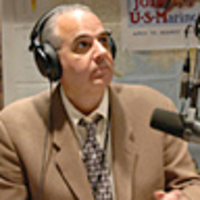The Trump administration’s celebration of the liberation of Mosul and the pending liberation of Raqqa is usefully reminiscent of the Truman administration’s celebration of the liberation of Berlin and pending liberation of Tokyo in the spring and summer of 1945.
An entertaining new history of Truman’s first months in office, A.J. Baime’s The Accidental Presidency: Harry S. Truman and the Four Months That Changed the World, is filled with events that are strikingly proportionate to what the Trump administration has weathered since January.
Both Truman and Trump were swept into office by what were seen as unpredictable twists, accidents of history. Both were regarded as inadequate, unready, unteachable replacements for celebrated politicians of genius.
ADVERTISEMENT
Both men immediately suffered the loud doubts of their parties, their adversaries, and their few allies. Both were disdained as products of greed, in Truman’s case, the Tom Pendergast Missouri Machine, and in Trump’s case, the mysteries of Manhattan development and Atlantic City gambling.
Both men tolerated the status quo ante of the Washington graybeards, in Truman’s case, from Sam Rayburn to James Byrnes to George Marshall. But they preferred the company of their longtime cronies, in Truman’s case, the gang from Missouri, and in Trump’s case, his family and his private business associates.
Both men endured public sniping at their wives and children. In Bess Truman’s case, she was shy to the point of panic and mocked as “Payroll Bess” for being listed on Truman’s Senate office staff. Mother Truman fired back at the “Yankees.” Margaret Truman survived being stared at and teased. With the Trump family, each new weekend brings a caravan of cutting gossip.
Both men spoke and acted in blunt, candid, prickly, abrupt fashion that roiled their respective supporters and inflamed the editorial writers. “These damn sheets,” said Truman.
And both men, within weeks of taking office, were called upon to make decisions that would determine the fate of whole continents and the future security of the United States and its allies. In Truman’s case, the atomic bomb and the break with Russia. In Trump’s case, North Korea’s nuclear-tipped ICBM ambitions and the break with Russia.
From April to July 1945, Truman’s decision to stay with an “unconditional surrender” demand on Berlin and Tokyo, when there were offered alternatives, darkened the casualty rates of the final battles. The reports of Hitler’s death, or of a coup in Tokyo, did not solve the imminent crisis of tens of millions in starvation.
Since January 2017, it has become increasingly clear that Trump’s call for wiping out ISIS has been answered by the acceleration of the Mosul and Raqqa campaigns, but it has not relieved the burden of decisions of how to confront the multiple-sided strife in Iraq and Syria, and a refugee crisis that has damaged three continents.
The widely rumored death of the infamous propagandist whose nom de guerre was al-Baghdadi does nothing to solve the unknown threats of the ISIS leadership and the even more apocalyptic al Qaeda.
There are more similarities between the two presidents’ first months—a restive Congress, a fragile economy straining to grow without Keynesian magic—but the major concern here is: What are the lessons learned when an unknown, untrusted new president is plunged into geopolitical turmoil abroad and political instability at home?
The first lesson is to follow Truman’s measure of the White House.
“This is a lonesome place,” wrote Truman, who called it “the Great White jail.” Truman’s getaway was to play low-stakes poker, often aboard the presidential yacht, Potomac, where he drank bourbon and talked raw Missouri farmhand with his pals.
Trump’s getaway is for lush golfing in New Jersey and Florida, where he can relax with his family and longtime friends.
A second lesson is that those in authority will battle the new president over any change from the old president’s decisions.
Truman cut the budget sharply and even vetoed a farm bill that granted military exemption to farmers. Both choices were seen as ruinous for re-election. Penny-pinching Truman abruptly shut the Lend-Lease spigot to Britain and Russia, and both Churchill and Stalin reacted with hostility to a president they did not comprehend.
A third lesson is that foreign policy is the president’s domain entirely for either success or failure. No other voice in the Cabinet, in the Congress, in the alliances, is the equal of the president’s.
A.J. Baime tells the story that on a poker night aboard Potomac, a naval aide brought news that Yugoslavia’s maverick dictator, Josip Tito, was trying to grab a piece of Italy that included Trieste.
“Tell the son of a bitch,” snapped Truman to the aide, “that he’ll have to shoot his way in.”
Trump faces armed confrontations in Syria, Ukraine, North Korea, the South China Sea. In certain Truman style, Trump has made it clear to America’s adversaries that he will shoot. Trump has also unleashed the air power and intelligence gathering of the United States in order to destroy, not degrade, the fleeing ISIS.
A final lesson from Truman to Trump is to work with Russia while at the same time never trusting Russia.
Truman met Stalin for the first time at the Potsdam Conference in July 1945. The battle of wills started instantly. Stalin was crude, imperial, sinister, relentless, false-tongued, paranoid, ruthless. Truman understood the rules. He called Stalin an “S.O.B” and added, “I guess he thinks I’m one, too.”






